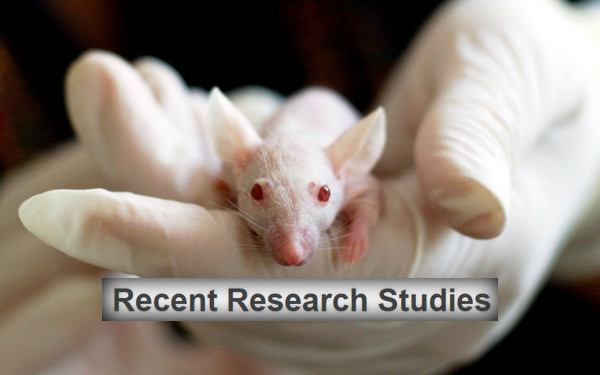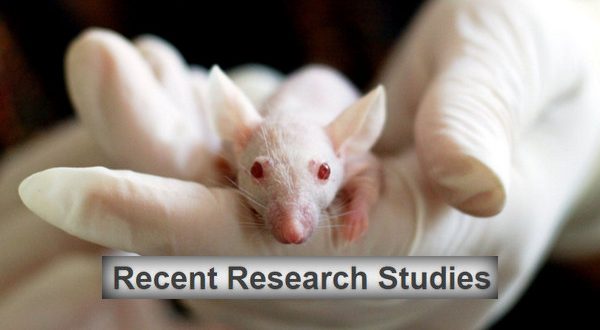Natural Protein [called: FGFBP3] offers Novel Therapy for Obese People
Date: 29 October 2018
University: Georgetown University
Summary: A natural protein FGFBP3 (BP3 for short) which elevates in many cancer types turned out to a vital enhancer for lipids and carbohydrates metabolism.

What’s FGFBP3?
It is a natural binding protein, which considered one of [Fibroblast Growth Factor Binding Proteins] Family [shortly known as (FGF-BP)], FGFs (Fibroblast growth factors) proteins are found in wide range of organisms start from worms to humans, and it has a role in many body biological processes like wound healing, cell regeneration, and cell growth, etc.
The main function of BP (binding proteins: FGFBP1, FGFBP2, and FGFBP3) is the activation of FGF proteins because of the BPs bind to and latch on to FGFs.
Study story
The study which performed in the medical center at Georgetown University and published in scientific reports journal found that the BP3 is a very effective therapy for the mice which suffers from Metabolic Syndrome (a disease in which the patient has some disorders like high blood pressure, insulin resistance, and excess body fats), because BP3 produce an effective therapy of this disease disorders such as Diabetes mellitus type 2 and Fatty liver
The professor of oncology and pharmacology at Georgetown University Anton Wellstein said that they found the using of BP3 treatments for more than 18 days showed that the mice with high obesity lost over than 1/3 of body fats”.
The research also showed that the BP3 treatments succeeded in treating some health disorders related to obesity and hyperlipidemia such as hyperglycemia, high cholesterol (LDL) and Triglycerides.
Because of depending on natural protein in this study without using chemical or artificial drugs; the Clinical examination besides the microscopic examination of obese mice showed no harmful side effect; So it is possible to perform clinical studies on human cases after making final pre-clinical studies on some other animals.
Study Discussion
The BP1 is the most important protein (chaperone) in BP family; as it interacts with many FGFs like FGF1, 2, 7, 10, 22, And the overexpression of BP1 is noticed in some cancer types which depend on the angiogenesis (abnormal blood vessels formation) in their growth and metastasis to other parts in the body.
Professor Anton Wellstein after long research on BP1 protein suggested that the formation of cancerous cells of many cancer types result from the over the delivery of FGFs by BP1.
But recently Wellstein and his colleagues give great attention to another binding protein (BP3) to illustrate its role in the body exactly.
And they found that BP3 bound to 3 different FGF proteins (FGF19, FGF21, and FGF23) which have a critical role in the metabolism process inside the body; FGF19 and FGF21 regulate the storage of lipids and carbohydrates, while FGF23 regulate phosphate metabolism.
Conclusion
As a conclusion, Wellstein said that this chaperone have an amazing contribution in the control of metabolism, so when the body has excess BP3; the activity of FGF19 and FGF21 increase; thereby speed up fats and sugars metabolism rate and convert (sugar in blood) and (fats in liver) to energy instead of the storage of them inside the body, At the end the study concluded that [BP3] is a vital Natural Protein offers Novel Therapy for Obese People.
Recommendations
In spite of the exciting results of this study among recent research studies, it is important to have additional research, preclinical and clinical trials before using BP3 protein as a human treatment for metabolic syndrome and obesity.
Reference
Elena Tassi, Khalid A. Garman, Marcel O. Schmidt, Xiaoting Ma, Khaled W. Kabbara, Aykut Uren, York Tomita, Regina Goetz, Moosa Mohammadi, Christopher S. Wilcox, Anna T. Riegel, Mattias Carlstrom, Anton Wellstein, “Fibroblast Growth Factor Binding Protein 3 (FGFBP3) impacts carbohydrate and lipid metabolism“, Scientific Reports, 2018; 8 (1) DOI: 10.1038/s41598-018-34238-5
 Recent Research Studies Recent Research Studies
Recent Research Studies Recent Research Studies 




3 comments
Pingback: diabetes type 1 treatment without insulin - Recent Research Studies
Pingback: Best Foods to Eat When You’re Pregnant - Recent Research Studies
Pingback: Banana Tea to Sleep - Biochemistry - Recent Research Studies